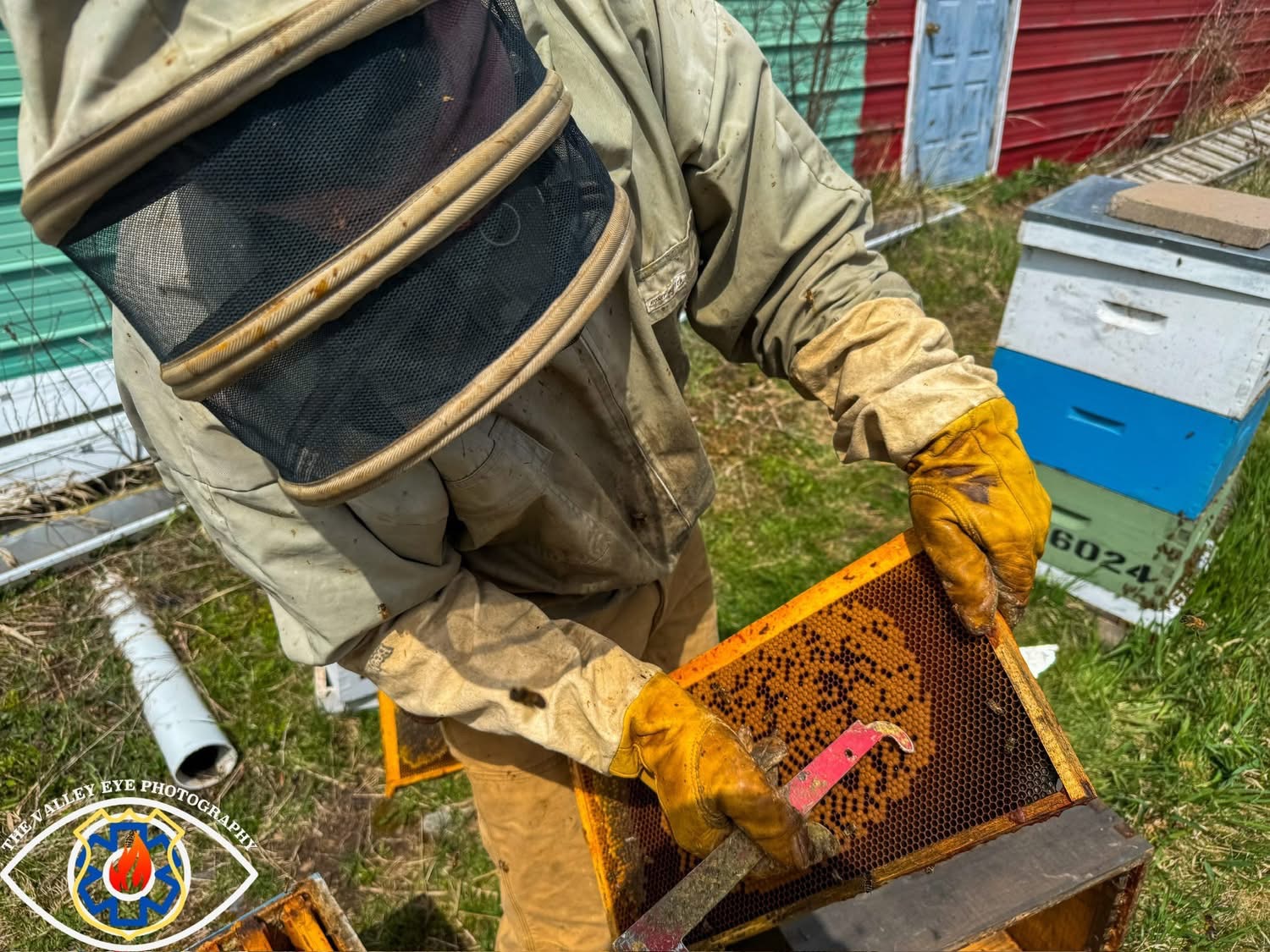Beekeeping is one of the most important parts within the agricultural industry.
Honeybees are essential for the pollination of many crops here in the Annapolis Valley and Nova Scotia.
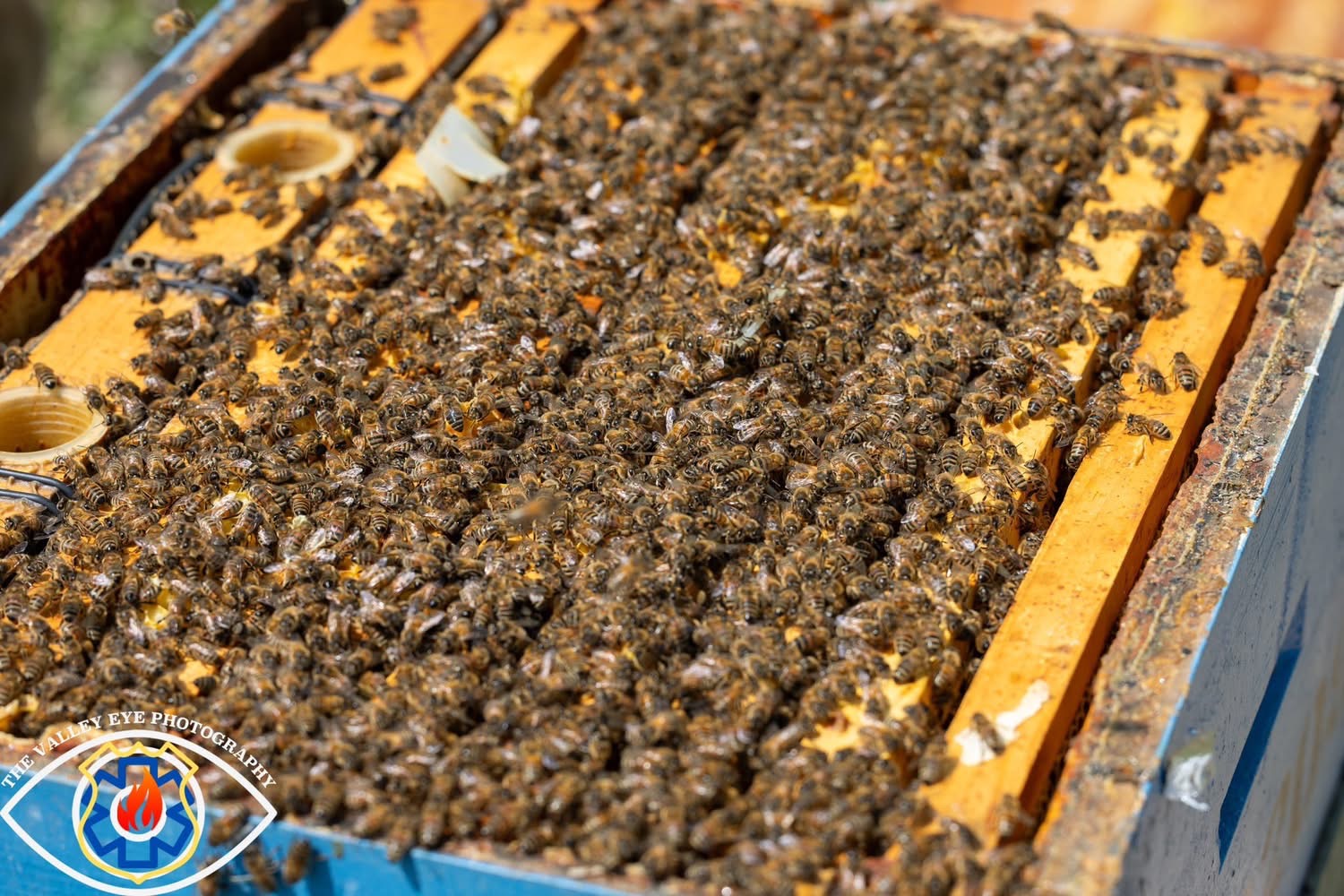
Without their pollination skills and the help of many beekeepers, yields could be significantly reduced, impacting food security and the livelihoods of farmers across Nova Scotia.
In 2023, there were a total of 912 beekeepers in Nova Scotia, contributing to 26,028 hives. In all of Canada, statistics also show there were 15,147 beekeepers made up of 766,874 colonies that helped contribute to the production of honey, crops and overall health of honeybees in 2023.
This time of year, beekeepers like Wood ‘n’ Hive located in Port Williams are unwrapping and inspecting their hives for another busy pollinating season!
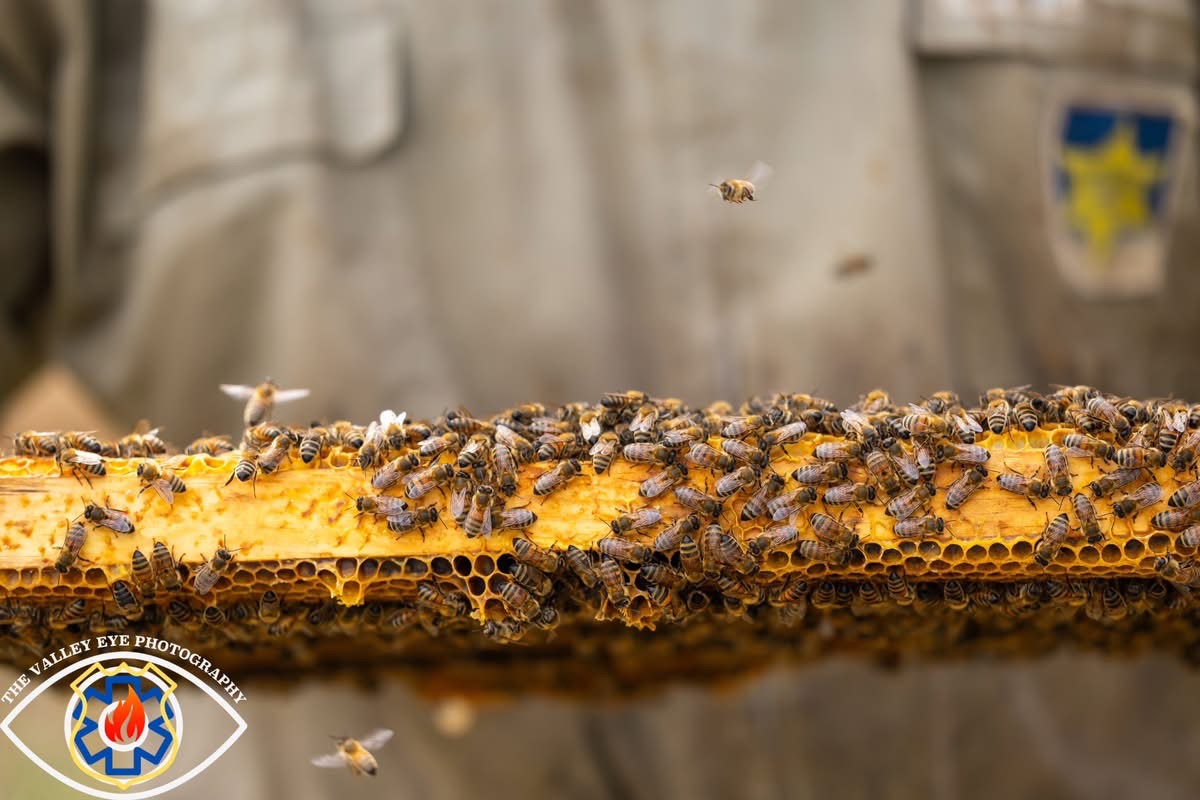
With approximately 100 hives they care for, they extract honey and beeswax to sell and produce products such as lip balms, food wraps, beeswax candles etc.
With almost 10 years of being in the industry, their primary goal is to provide education about the importance of honeybees and their impact on the agricultural industry and environment.
“I am a retired elementary school teacher and my husband Alex was very keen on educating people before his passing.” Stated Heather Crouse.
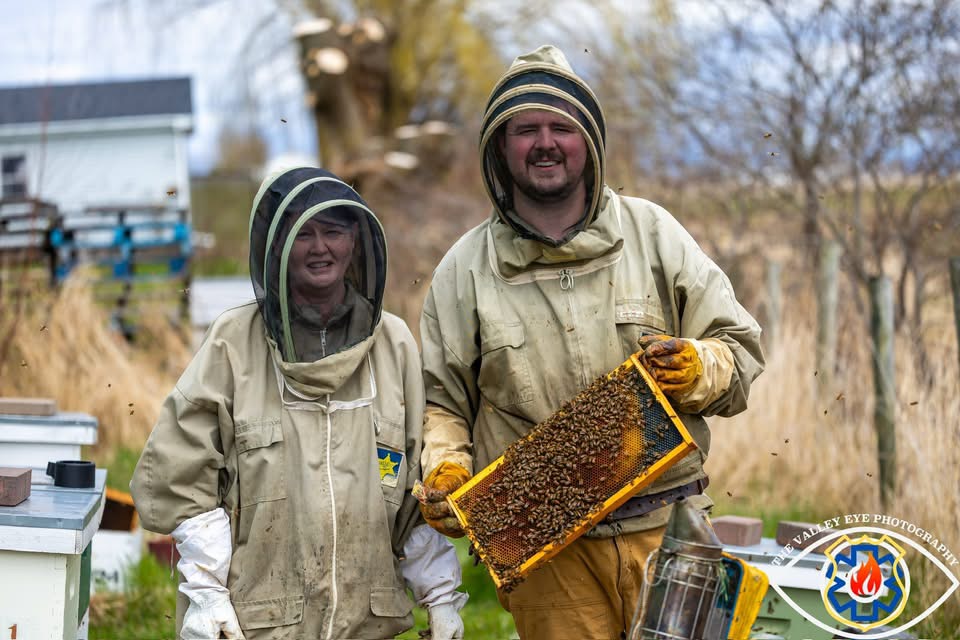
Prior to her husband’s passing, Alex was the president of the Beekeepers Association in Nova Scotia, with close to 300 hives in his care. After his passing, they had to reduce their hives, but with help from her four children, they continue to keep his passion alive for others to learn and enjoy.
With an observation hive inside the gift shop it gives many the opportunity to stop in, learn and check out the bees up close, while also supporting local.

I had the chance to get a little more up-close and personal than others normally would, surrounded by thousands of workers who pollinate and produce honey every year.
While many believe honeybees go dormant in the winter, they remain quite active within their hives.
Bees form a tight cluster to stay warm while consuming their honey stores. They vibrate their flight muscles to generate heat, most particularly during cold spells. Protecting the queen bee who remains at the center of the cluster.
Through the winter months, beekeepers help ensure hives have adequate food, shelter and insulation.
There are restrictions in Nova Scotia and surrounding provinces on honeybee and queen bee importation. Beekeepers in Nova Scotia must be a registered beekeeper while also obtaining a permit through Nova Scotia Department of Agriculture, in order to import.
This time of year new queen bees from other countries are brought in to support Honeybee colony splitting, which involves dividing an established hive into two or more new colonies.
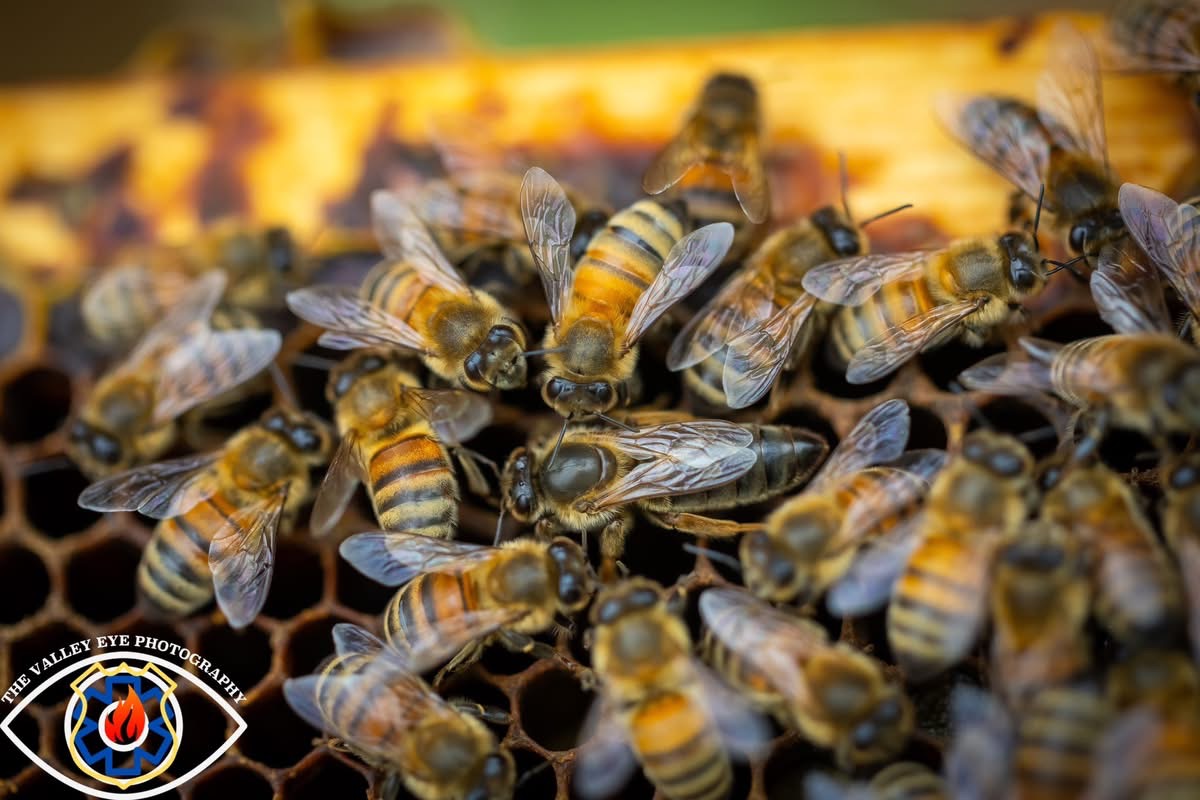
This process is done for a few reasons; to prevent swarming, increase colony numbers, or raise new queens. Splits are typically performed in the spring during a nectar flow when colonies are naturally growing.
During the winter, weaker colonies can be lost, while other hives may flourish, resulting in the hive being split.
When warmer weather is a little more consistent, this allows for the hives to be unwrapped of their insulation, ensuring they have enough food to keep their colonies strong until pollinating takes place.
“We’re very happy to see that these hives are quite strong this year, versus other years due to climate change and other environmental issues.” Stated Crouse.
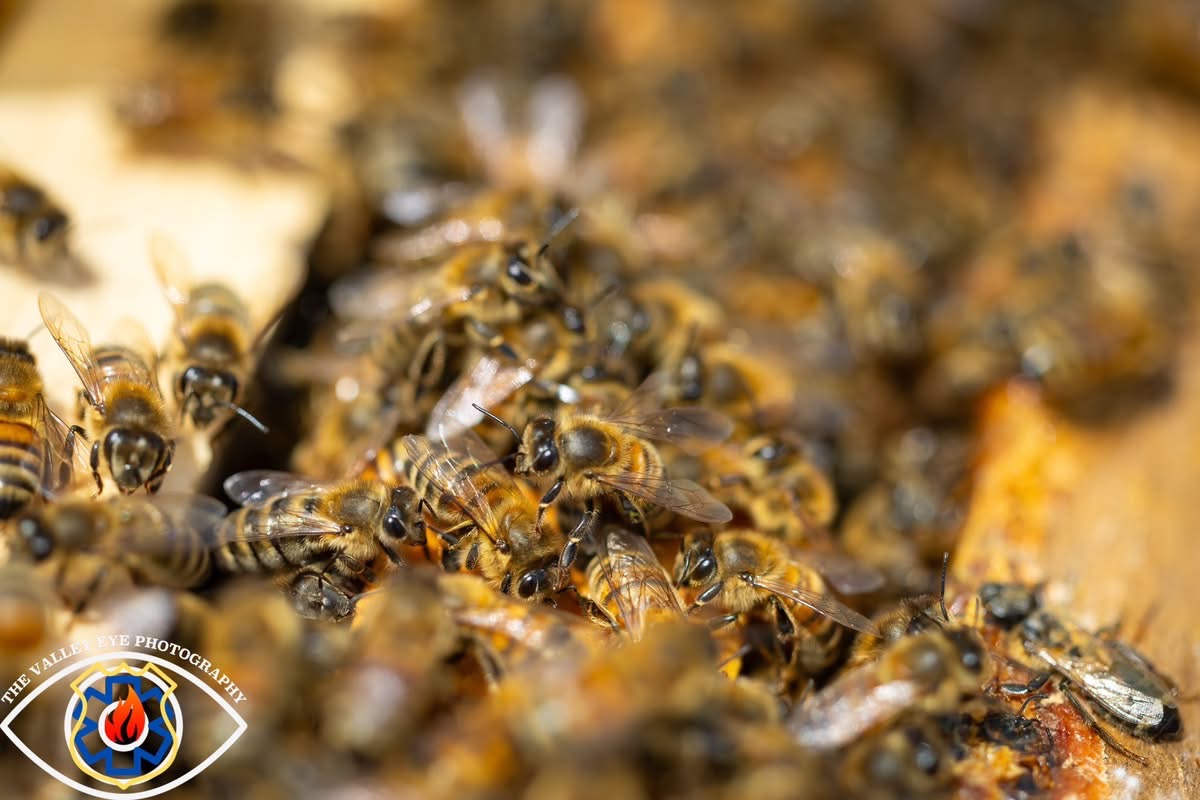
Climate change is a major contributor to the overall health of bee colonies. With fluctuating temperatures, this can be detrimental to the colonies, while consistent cold temperatures can actually be less stressful on the colonies.
“My husband came from several generations of farmers. They had a few hives when they were farming for their crops and own use. After he retired, he didn’t want to sit around, he wanted to get back into farming. I didn’t want chickens or cows, so he chose bees and I said sure.” Stated Heather after asking how the business started.
This time of year, it’s extremely important to respect the space of bees!
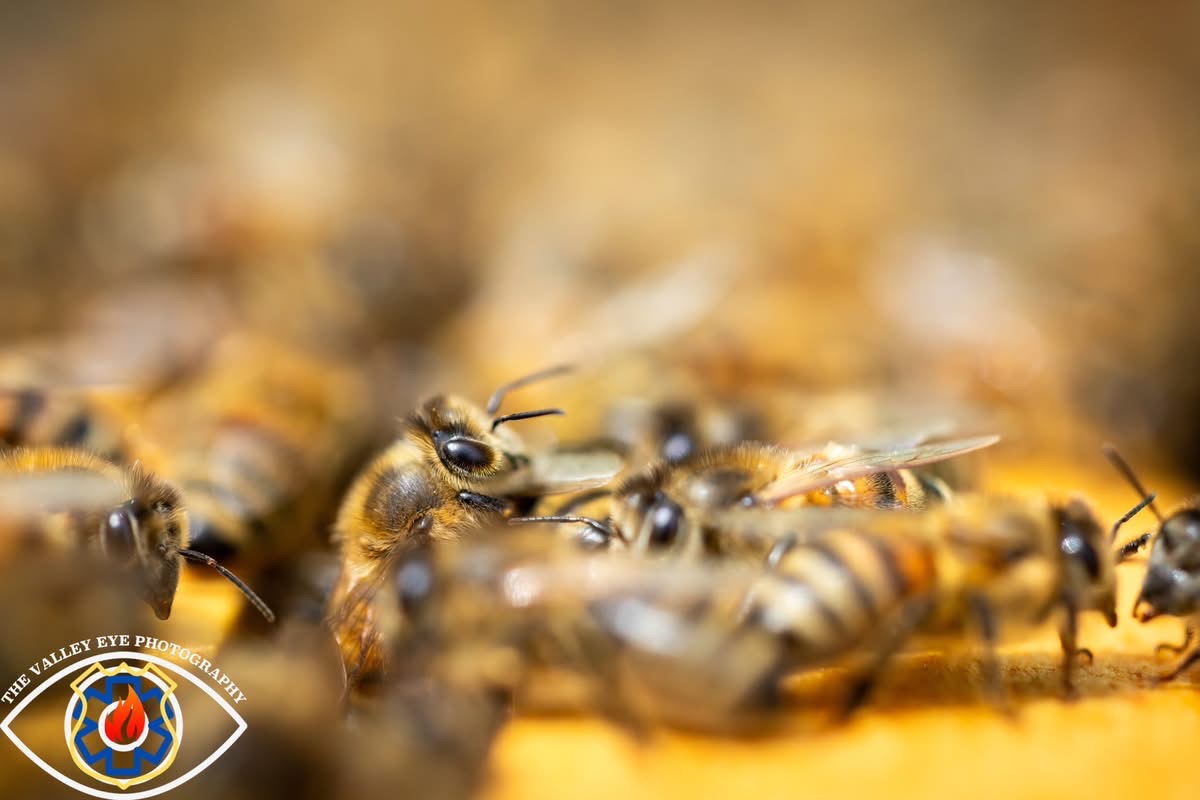
Honeybees are not the only pollinators out there. Wasps, bumblebees and other native bees are also important to the pollination process.
⚠️🐝 Bee Tips 🐝⚠️
There are many ways you can help this year!
Creating a bee friendly environment
• Grow a bee friendly garden
• Provide water
• Avoid pesticides
By planting flowers that are specifically helpful to bees, you can help with the production of a honeybee colony.
There is a link attached with 14 different varieties of flowers that help bees! ⤵️
https://www.gardendesign.com/flowers/bees.html#flowers
“No Mow May” is an actual thing. It’s encouraged to avoid mowing in the month of May. This can make a huge difference in the production of bee colonies. Don’t mow your dandelions!!! Dandelions are a good source of early pollen for bees.
Swarms:
If you happen to see a swarm, stay calm and keep a safe distance. In most cases, within a few hours the swarms will move on naturally.
Honeybee swarms are typically encountered when a colony is looking for a new home. This is because their previous home was disturbed or became too small for their existing colony.
If you find a swarm, you can reach out to a local beekeeper who will then come and safely remove the colony and give it a new home!
Honeybees can only sting once and then they die. If they feel threatened, they will sting you. Otherwise, stay calm and keep your distance, and you’ll be safe!
Some information has been sourced directly from the Nova Scotia Bee Keepers Association, Nova Scotia Agriculture & Agriculture Canada websites.
I anticipate a follow-up throughout the summer months about the process of honeybees will be done!
Special thanks to Heather and Brian for letting me drop by and learn the importance of our honeybees!
Adrian J.

